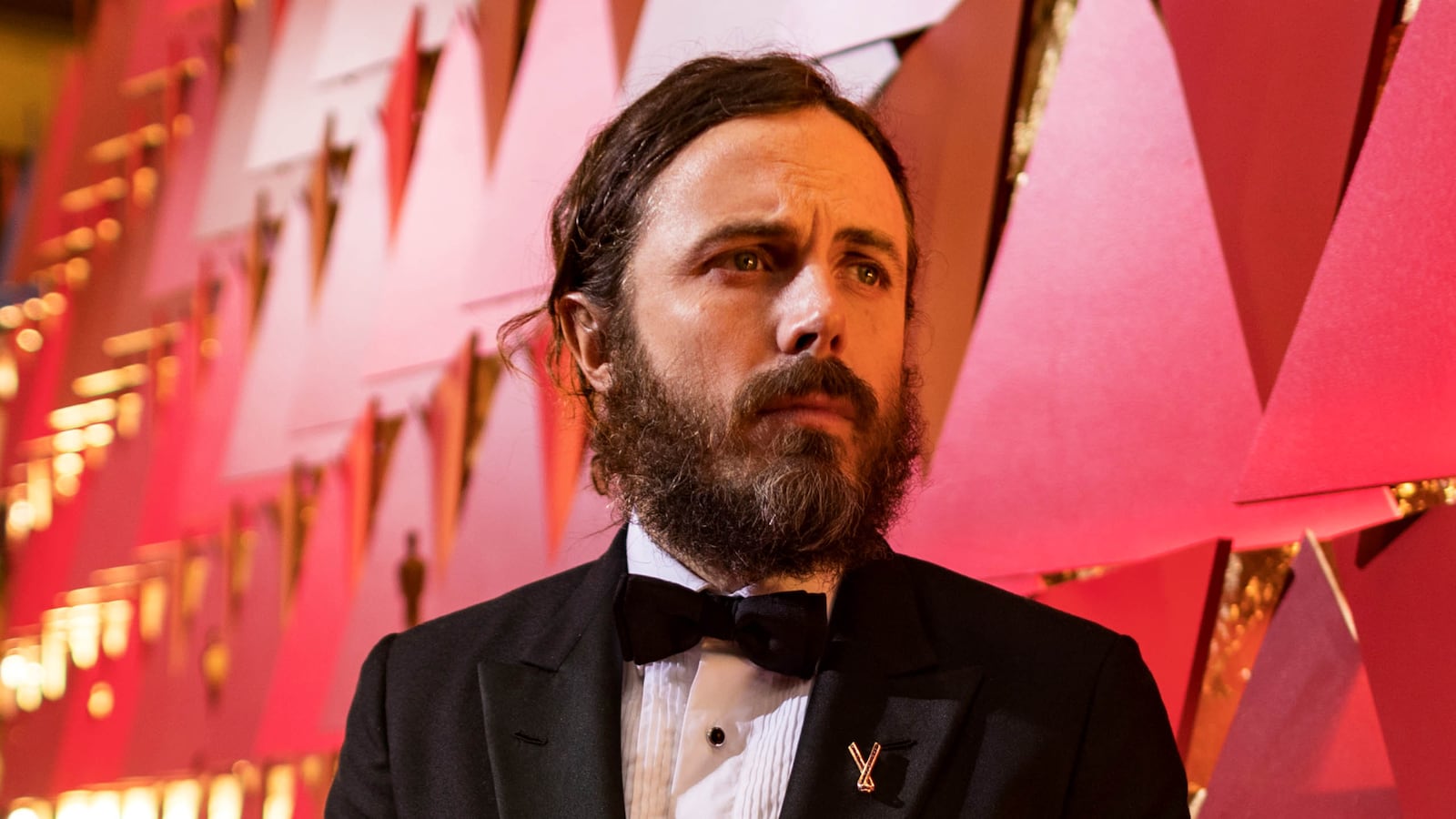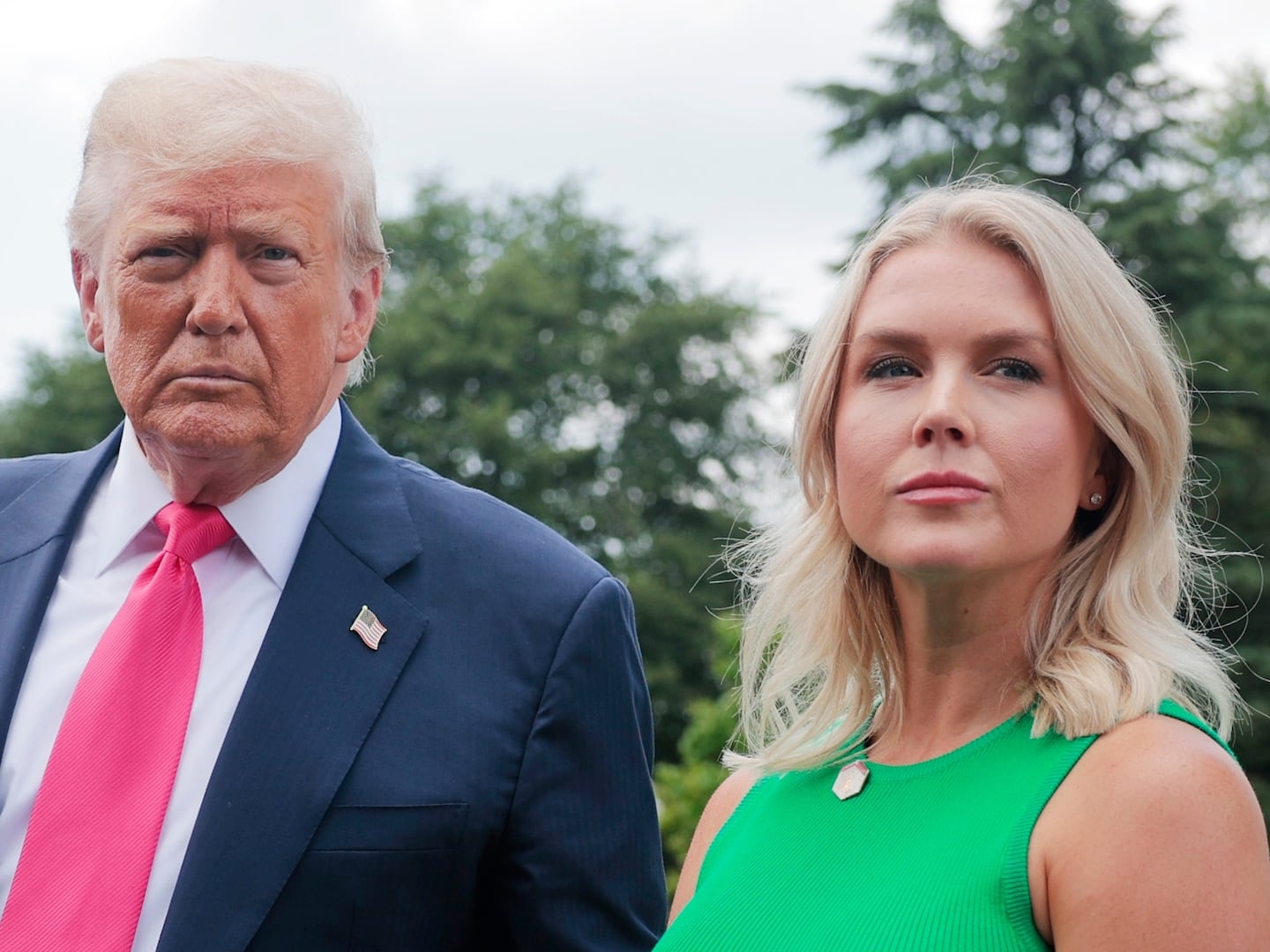In 2016, hot off the most critically-acclaimed turn of his career, Casey Affleck was hit with resurfaced sexual-harassment allegations. Two 2010 lawsuits against the actor, once buried paragraphs deep in glowing profiles fit for an Oscar frontrunner, were brought to the forefront of the conversation. Suddenly, people were asking more questions about Affleck’s past behavior—and calling out fawning journalists and Hollywood enablers.
After inevitably taking home the Academy Award, the actor briefly addressed the controversy. In a post-award interview with The Boston Globe, Affleck emphasized that he couldn’t legally discuss the settled case. However, he offered, “I believe that any kind of mistreatment of anyone for any reason is unacceptable and abhorrent, and everyone deserves to be treated with respect in the workplace and anywhere else.”
“There’s really nothing I can do about it,” he concluded, “other than live my life the way I know I live it and to speak to what my own values are and how I try to live by them all the time.”
It was a woefully insufficient statement, and one that did little to relieve mounting pressure. Unfortunately for the actor, he had picked the exact wrong time to try and dodge a sexual-harassment conversation. As the Me Too and Time’s Up movements ramped up, Affleck was among a handful of accused actors who made themselves scarce. At the 90th Academy Awards, Casey Affleck was nowhere to be found. Had Affleck shown up, he would have been tasked, as last year’s Best Actor, with presenting the Best Actress award. According to Variety, the actor withdrew from the ceremony to “avoid becoming a distraction.”
Now that calling out alleged abusers has proven itself to be more than a fad, Casey Affleck has realized that he can’t dodge cameras and uncomfortable interviews forever. Ahead of his fall film, The Old Man & The Gun, Affleck has done an updated definitive allegations interview—the kind of sit-down that aims to put accusations to rest once and for all. Whereas the old Affleck said that, “There’s really nothing I can do about it,” the new Casey Affleck is all about educating himself and learning to accept responsibility. He’s sorry.
In the AP interview, Affleck lets Lindsey Bahr into his new and improved headspace. Asked about the 2010 lawsuits, Affleck began, “First of all, that I was ever involved in a conflict that resulted in a lawsuit is something that I really regret. I wish I had found a way to resolve things in a different way. I hate that. I had never had any complaints like that made about me before in my life and it was really embarrassing and I didn’t know how to handle it and I didn’t agree with everything, the way I was being described, and the things that were said about me, but I wanted to try to make it right, so we made it right in the way that was asked at the time. And we all agreed to just try to put it behind us and move on with our lives, which I think we deserve to do, and I want to respect them as they’ve respected me and my privacy. And that’s that.”
The Manchester By the Sea actor continued, “Over the past couple of years, I’ve been listening a lot to this conversation, this public conversation, and learned a lot. I kind of moved from a place of being defensive to one of a more mature point of view, trying to find my own culpability. And once I did that I discovered there was a lot to learn. I was a boss. I was one of the producers on the set. This movie was (shot in 2008, 2009) and I was one of the producers. And it was a crazy mockumentary, (a) very unconventional movie. The cast was the crew and the crew was kind of the cast and it was an unprofessional environment and, you know, the buck had to stop with me being one of the producers and I have to accept responsibility for that and that was a mistake.”
“And I contributed to that unprofessional environment and I tolerated that kind of behavior from other people and I wish that I hadn’t. And I regret a lot of that. I really did not know what I was responsible for as the boss. I don’t even know if I thought of myself as the boss. But I behaved in a way and allowed others to behave in a way that was really unprofessional. And I’m sorry.”
Discussing the lessons he’s tried to impart to his sons, Affleck continued, “I certainly tell them to own their mistakes when they make them.”
In the Me Too era, the dissection of male apologies has been elevated to an art form. But Affleck’s responses fail on a fundamental level. It’s not a matter of taste or preference to point out that Affleck is simply not addressing, let alone owning up to, the “mistakes” he’s been accused of making.
According to her lawsuit, producer Amanda White was repeatedly harassed while working on Affleck’s experimental documentary I’m Still Here. As The Daily Beast previously reported, “On one occasion, [White] claimed that Affleck ordered a crew member to take off his pants and show White his penis—even after she vehemently objected. She claimed that Affleck repeatedly referred to women as ‘cows,’ and recounted his sexual exploits with reckless abandon. In her complaint, White recalled Affleck asking her ‘Isn’t it about time you get pregnant?’ once he learned her age, and suggesting that she and a male crew member reproduce.”
“She described an instance where she was prevented from returning to her bedroom during shooting, because Affleck and Phoenix had locked themselves in her room with two women where they had sex with them (Affleck was married with two children to Phoenix’s sister, Summer, at the time—though the couple recently split),” the Beast report continued. “She also alleged that Affleck attempted to manipulate her into sharing a hotel room with him. When she resisted, White claimed, he grabbed her threateningly and attempted to scare her into submission. Affleck then allegedly proceeded to send White abusive text messages, calling her ‘profane names’ for refusing to stay with him.”
Affleck’s new apology feels sincere, and is a thoughtful response to allowing a toxic environment to flourish on his set. He admitted that he “contributed to that unprofessional environment” and that he “allowed others to behave in a way that was really unprofessional.” But Amanda White and Magdalena Gorka, I’m Still Here’s director of photography, alleged specific, egregious behavior by Affleck that goes far beyond fostering a workplace where women feel uncomfortable.
As The Daily Beast previously reported, Gorka’s lawsuit details an incident that allegedly occurred when she traveled to New York with other crew members: “At the time, Gorka was the only woman actively working on the film. In lieu of paying for a hotel, she said Affleck and Phoenix decided to have the crew stay overnight at their apartment. After a long shoot, she claimed Phoenix offered to sleep in the living room and give Gorka his private bedroom.”
“According to Gorka’s complaint, she awoke in the middle of the night to find Affleck lying in bed next to her. She alleges that the actor was ‘curled up next to her in the bed wearing only his underwear and a T-shirt. He had his arm around her, was caressing her back, his face was within inches of hers and his breath reeked of alcohol.’ Unaware of how long Affleck had been there or whether or not he had touched her while she slept, Gorka said she was ‘shocked and repulsed.’ When she ordered Affleck out of bed, he allegedly responded, ‘Why?’ to which she replied, ‘Because you are married and you are my boss.’ Affleck then allegedly asked if she was ‘sure,’ and when Gorka remained resolute, she claimed Affleck ‘left and slammed the door in anger.’”
In legal documents, Gorka described her experience as “the most traumatizing of her career.” Affleck settled with both of his accusers out of court.
Anyone can read through the two sexual harassment suits and decide for themselves if Affleck’s apology is sufficient. But rest assured that Casey Affleck has moved on. When asked to respond to the idea that he, the accused abuser who won an Oscar anyway, was treated unfairly in all of this, Affleck declined to comment while calling attention to his admirable restraint. “Whether I have or haven’t, I think that there are people in the world who deal with much greater hardship than that. And they do so without complaint. So I don’t think I need to say anything else about it.” Please, hold the applause.






